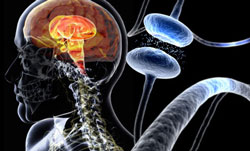A lack of sleep within adults has become an epidemic affecting between 50 and 70 million Americans as young as 18, according to the Center of Disease control and Prevention. This becomes an issue on college campuses when students cannot perform to the best of their ability due to lack of sleep.
Between classes, work, and daily activities, the average college student spends six to seven hours per night sleeping, which is below the average of seven and a half to nine hours suggested by the National Institute of Neurological Disorders and Stroke. It might appear to be a problem with a simple solution but some students are finding it hard to attain the proper balance between getting the right amount of rest and fulfilling academic obligations.
“Nationwide poor sleep hygiene, which is what we call sleep deprivation, is a really big issue for college students that I think is underestimated,” Franca Mancini, Director of Psychological and Counseling Services, said. “Most students do not understand the full impact of not getting enough sleep. It seems like ‘Oh I’ll sleep on the weekends’ or ‘I’ll catch up when I can.’ You are not going to function well or think clearly, and you are going to crash if you do not get enough sleep.”
According to the National Institute of Neurological Disorders and Stroke, “The main reason adults need sleep is to relax and recharge their mind and bodies. At night when sleeping, humans go through five different cycles of sleep in which the brain slows down and produces different waves called delta waves.” The institute’s website, ww.ninds.nih.gov, states, “When the body enters into the final stages of deep sleep, it is called a Rapid Eye Movement (R.E.M.) cycle, which can last anywhere from 90 to 110 minutes, and can repeat four to six times a night. That is why napping for more than 30 minutes will lead to grogginess and disruption of sleep schedule.”
“We frequently see students who have issues related to sleep deprivation and poor sleep hygiene in general,” said Mancini. “Some of the things that students need to keep in mind are even though it shifts after four months because your schedule changes, you really need to sit down and look at your time management that together with your classes, study time, working, going to clubs, and eating, you also fit in sleep with a good solid six to eight hours to function properly.”
Even though the idea of not getting an extra full hour of sleep might not seem like a tremendous sacrifice as a young adult, it can later on have long-term consequences with mental and physical health, Mancini explained.
“One of the things that we know of not getting enough sleep will lead to some of the symptoms we see in other kind of disorders particularly depression and anxiety. It can also lead to symptoms such as distractibility, limited tolerance for frustration, irritability, and also poor eating habits,” added Manicini.
Lack of sleep could add stress to students dealing with pre-existing disorders; from the physical stand point, not getting enough sleep can lead to major health risks such as weight gain, diabetes, and heart disease, she added.
“On certain days I feel I get enough sleep, about seven to eight hours, but on others nights I don’t,” Jackie Dipasquale, a junior communication major, said. “If I’m not getting enough sleep, it’s usually because I’m finishing up my homework. To help with my lack of sleep, I eat healthier than I normally do and sometimes have some coffee or tea,” she continued.
Students may have trouble sleeping because of their sleep pattern, but it can also be due to lifestyle and nutrition factors, like eating food late at night, said Mancini. Those who do consume large amounts of alcohol or caffeine can suffer from major sleep deprivation as it defers the body from its natural functioning state, Mancini added.
Suanne Schaad, coordinator for substance abuse, said, “Students who drank a lot or did other drugs will often say they passed out and slept so long after drinking. What really happens is they go through like a mini withdrawal and will wake up once the blood alcohol levels drops lower.”
Schaad explained that students who drink will be more likely to wake up in the middle of the night, which causes the sleep to be less productive than if the student had not been drinking. “We don’t reach the REM stage of sleep, which is the stage where our bodies need to rest. That is why we might also feel tired the next day after partying,” Schadd said.
There are also several environmental factors that can affect sleep patterns such as noise, light and temperature. Mancini said that creating a nightly routine could lead to better sleep hygiene and help students fall asleep faster.
“Determine what time it is you need to go to bed, as you should try to go to sleep the same time every night. Our bodies get used to a routine, so if you go to bed every night you will start to feel drowsy at that time,” Mancini said. “That means certain neuro-chemicals are building up telling your body it’s time to go to sleep.”
Manicni continued that doing soothing activities such as showering, light reading or listening to music can aid with falling asleep, but that also means disconnecting as the light from devices such as tablets, phones and computers effect the different parts of the cortex in the brain that will keep a person awake and alert.
“As a student teacher, it’s been rough adjusting my sleep schedule so that I can get up early enough to make it to the high school before classes begin,” Tiffany Mattera, a senior mathematics and education major, said. “Waking up before the sun rises is only possible if I can get to bed between 9:30 pm and 10 pm, resulting in between seven and eight hours of sleep. I used to read my kindle before bed but reading kindles, phones, and laptop screens prevents your mind from relaxing, so I’ve stopped doing that too,” Mattera added.
Mancini said that as a final measure, students could also take different types of medications if they still cannot sleep after changing habits to improve their sleep hygiene, but there should be caution in taking these medicines and should only be used after consulting with a physician.
“Negative outcomes can include drowsiness, dizziness, constipation, stomach upset, blurred vision, or dry mouth, nose, throat may occur. While some psychological effects are confusion, reduced alertness, and slow reaction times and judgment,” Schaad said.
PHOTO TAKEN from chatham.edu



